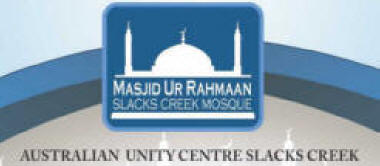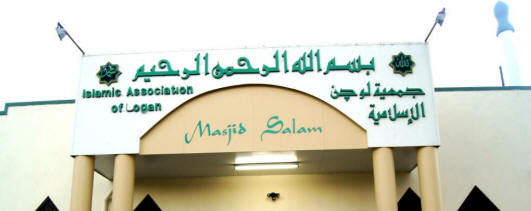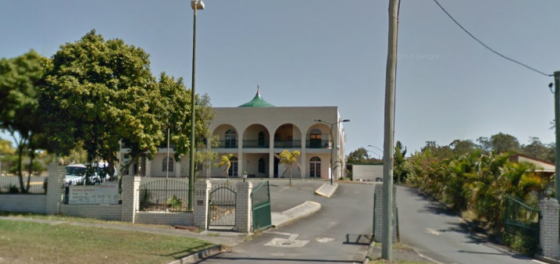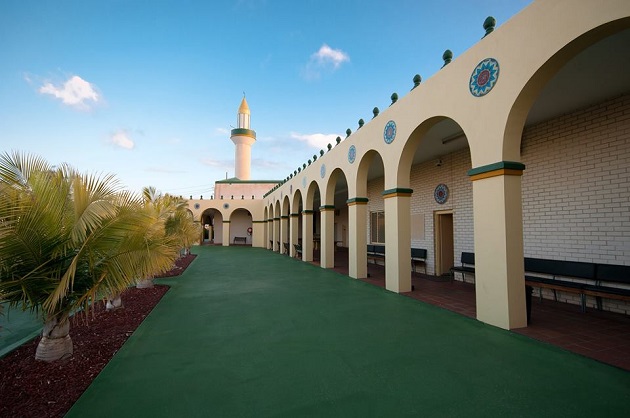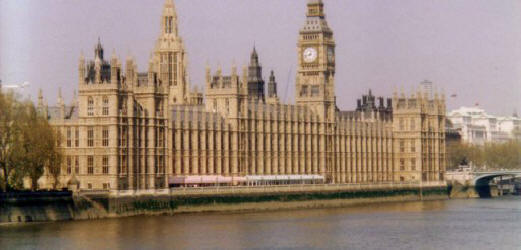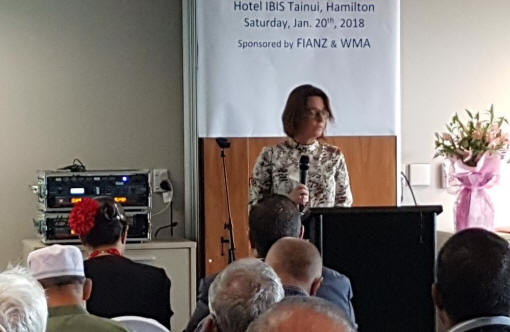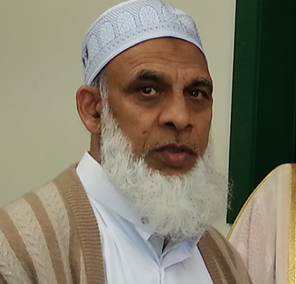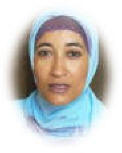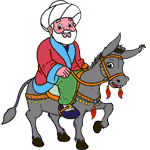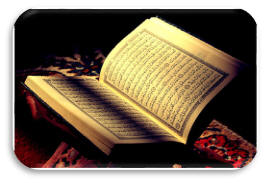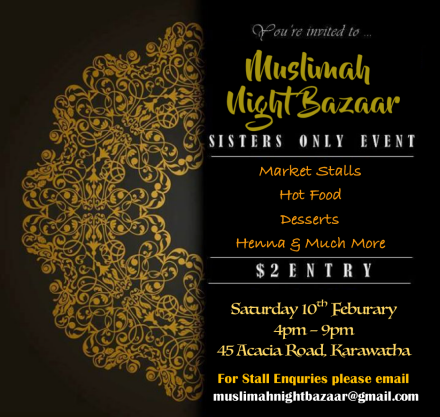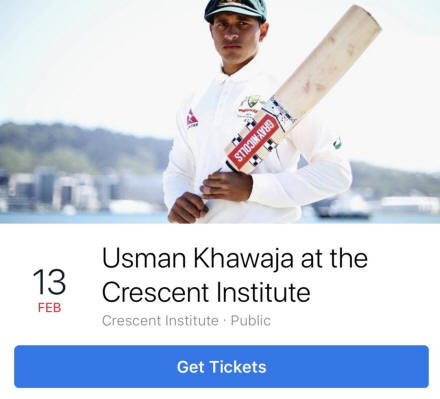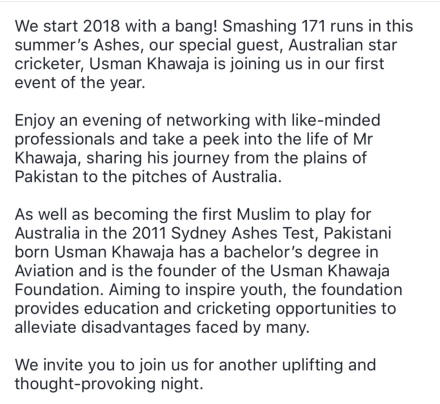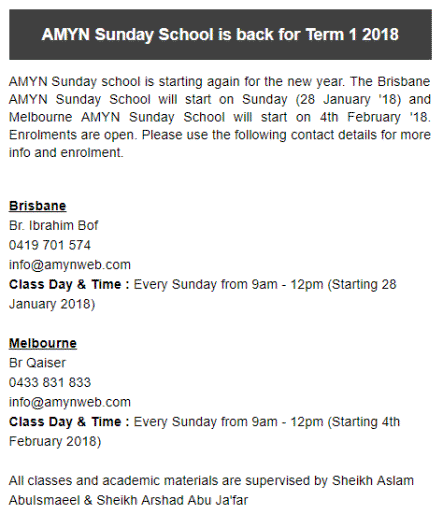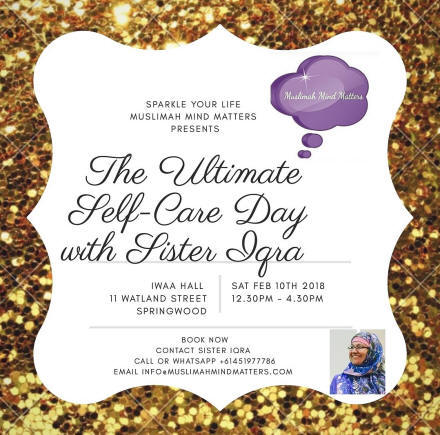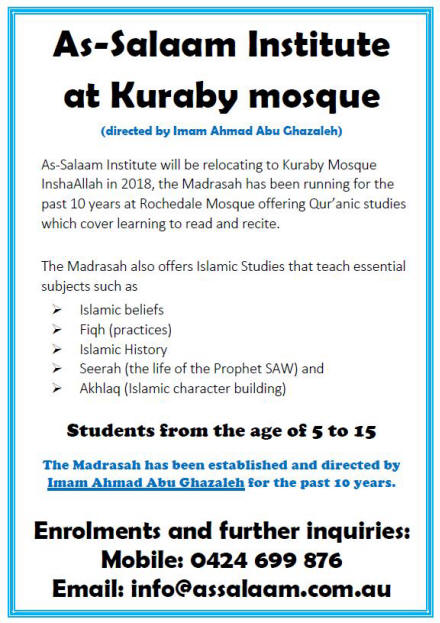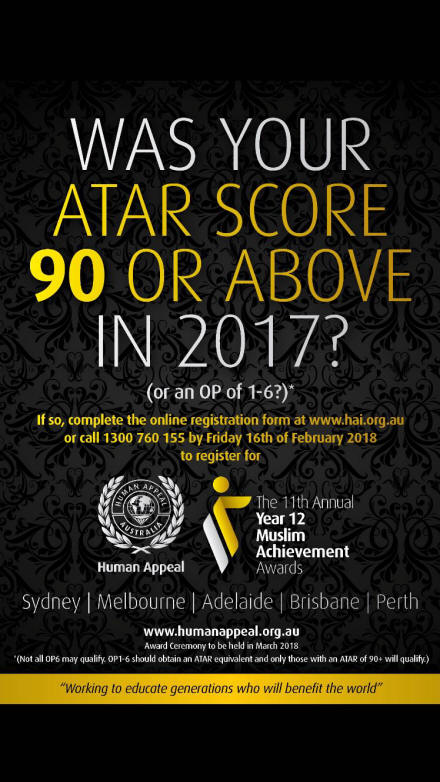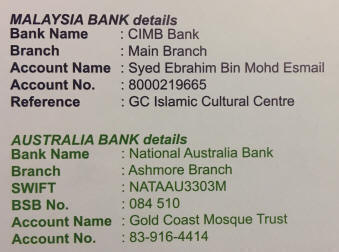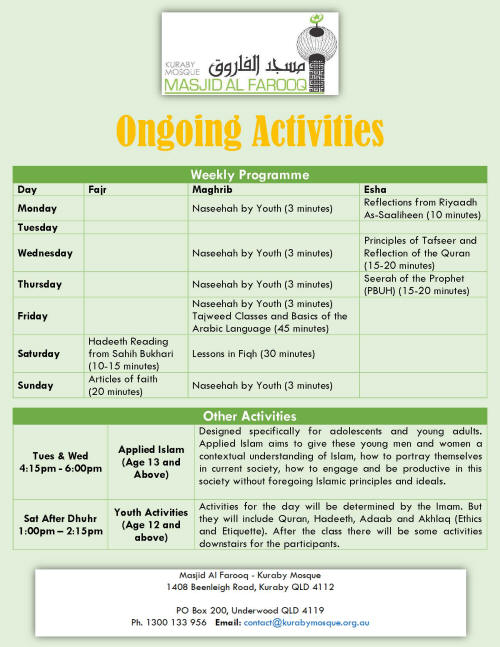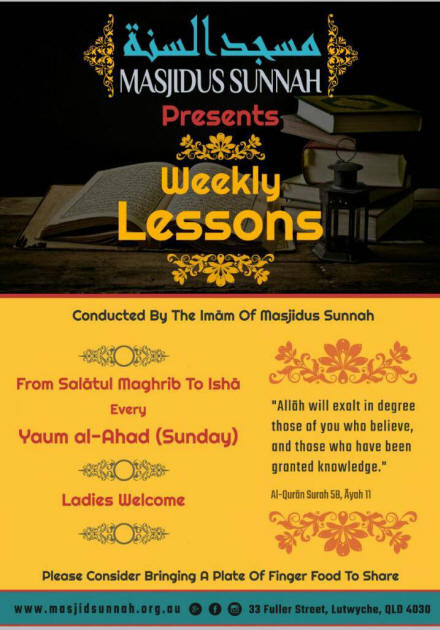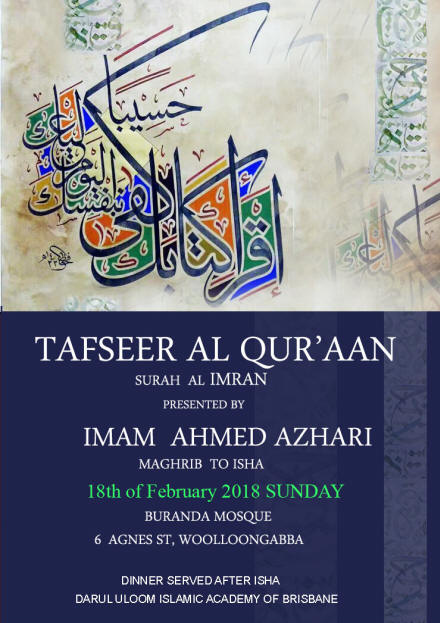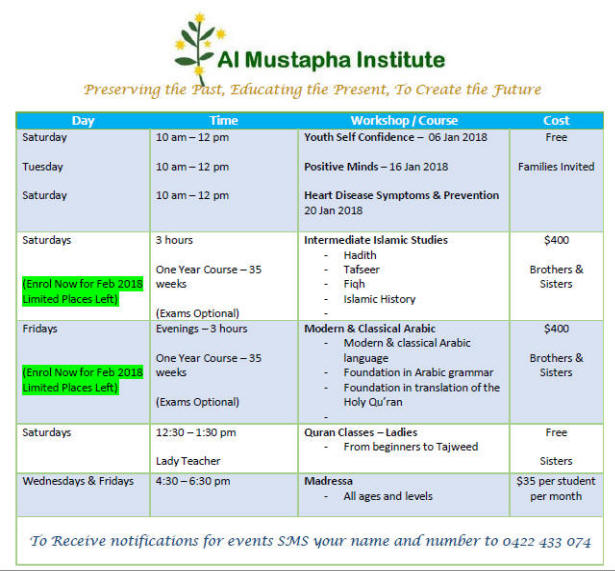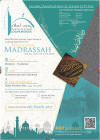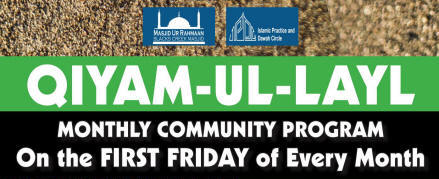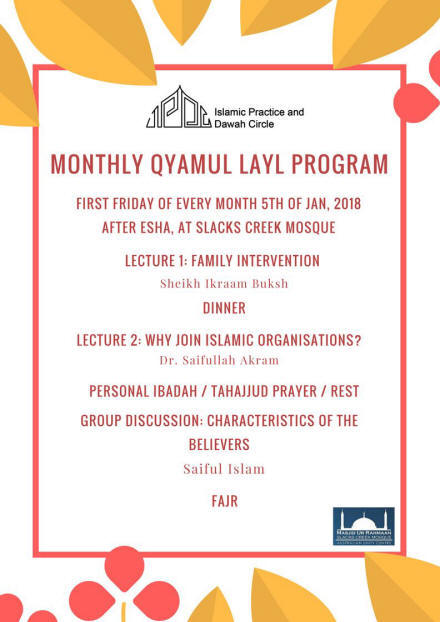|

China’s Greatest
Muslim Explorer–
Zheng He
|
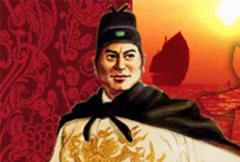
Zheng He
was born
in 1371
in the
southern
China
region
of
Yunnan
to a Hui
(a
Muslim
Chinese
ethnic
group)
family. |
When people
think of great
explorers, they
think of the
usual names:
Marco Polo, Ibn
Battuta, Evliya
Çelebi,
Christopher
Columbus, etc.
But not many
know of one of
the most
interesting and
influential of
all time.
In China, he is
well known,
although not
always globally
recognized or
glorified. He is
Zheng He, the
Muslim who
became China’s
greatest
admiral,
explorer, and
diplomat.
Continued from
last week.
Spreading
Islam
Economics and
politics were
not the only
effects of this
great fleet that
was commanded by
Zheng He. He and
his Muslim
advisors
regularly
promoted Islam
wherever they
traveled. In the
Indonesian
islands of Java,
Sumatra, Borneo
and others,
Zheng He found
small
communities of
Muslims already
there. Islam had
started to
spread in
Southeast Asia a
few hundred
years before
through trade
from Arabia and
India. Zheng He
actively
supported the
continued growth
of Islam in
these areas.
|

The
ships
Zheng He
commanded
were up
to 400
feet
long,
many
times
the size
of
Columbus’s
ships
that
sailed
across
the
Atlantic.The
ships
Zheng He
commanded
were up
to 400
feet
long,
many
times
the size
of
Columbus’s
ships
that
sailed
across
the
Atlantic. |
Zheng He
established
Chinese Muslim
communities in
Palembang, and
along Java, the
Malay Peninsula,
and the
Philippines.
These
communities
preached Islam
to the local
people and were
very important
to the spread of
Islam in the
area. The fleet
built masjids
and provided
other social
services the
local Muslim
community would
need.
Even after the
death of Zheng
He in 1433,
other Chinese
Muslims
continued his
work in
Southeast Asia,
spreading Islam.
Chinese Muslim
traders in
Southeast Asia
were encouraged
to intermarry
and assimilate
with the local
people on the
islands and
Malay Peninsula.
This brought
more people to
Islam in
Southeast Asia,
as well as
strengthened and
diversified the
growing Muslim
community..
TO BE CONTINUED
IN NEXT WEEK'S
CCN.
Source

What No One
Told You about
Spiritual Abuse
in Islam
By Janet Kozak
Abuse in
relationships is
not only black
eyes, bruises,
and broken
bones. With the
exception of
traumatic brain
injury in Muslim
victims, it’s
often the abuse
hidden from
plain view –
like financial,
verbal, and
spiritual abuse
– that does the
most damage to
victims
long-term.
However, it’s
the spiritual
abuse we
experience in a
relationship
that can leave
us doubting
ourselves, our
goals, and even
our belief
systems –
changing us for
the worse and
leaving
lingering
invisible scars
over time.
Continued from
last week.
Know the signs
Spiritual abuse
entails exerting
power and
control over a
victim using
religion as an
excuse or
explanation to
abuse. It can be
exhibited in
many ways:
Using
isolation
Isolation is
typical
emotional abuse
technique used
on Muslim
victims, and all
victims, of
domestic abuse.
It works well
because it
prevents victims
from reaching
out to others to
get the help and
support them
need to end or
escape their
abusive
relationships.
In the case of
Islamic
spiritual abuse,
a husband may
use his status
as the “qawwam”
(protector and
maintainer) of
his family unit
to argue that he
has a right,
given by Allah,
to dictate what
his wife does
with her time.
This may include
where she goes,
who she
interacts with,
and even what
she reads or
thinks.
In spiritually
abusive
relationships,
the woman may
have to ask
permission any
time she wants
to leave the
house – even if
it is to go
grocery
shopping, attend
a doctor’s
appointment, or
visit her own
family. It’s
also possible
that even if a
woman’s marriage
contract
explicitly
states that she
is to have full
autonomy and
freedom of
movement; a
spiritually
abusive husband
will ignore the
stipulation.
TO BE CONTINUED
IN NEXT WEEK'S
CCN.
Source

Muslims Fashion
diplomacy sparks
cover-up uproar
|

Australian
designer Ilham A. Ismail, in
Sydney yesterday with one of her
outfits, welcomes DFAT’s support
for the industry.
|
The Department
of Foreign
Affairs and
Trade has been
criticised for
its foray into
“fashion
diplomacy” after
sponsoring an
Australian-made
Islamic clothing
exhibition
targeting the
burgeoning
Southeast Asian
“modest fashion”
market.
Tony Abbott
yesterday
launched an
attack on DFAT
for backing the
initiative,
accusing
bureaucrats of
having a “very
unfortunate
readiness” to
ignore
mainstream
Australian
values.
The former prime
minister said he
was
“flabbergasted”
that DFAT had
sponsored an
exhibition of
Australian-made
“modest fashion”
for women in
Malaysia, a
majority-Muslim
country.
The exhibition,
which has
featured burkini
swimsuit
inventor Aheda
Zanetti and
academic Susan
Carland, was
taken to
Malaysia by DFAT
to capture the
“booming”
fashion market
while promoting
Australian
diversity. The
move comes as
the federal
government is
increasingly
working with
governments in
Southeast Asia
to reduce
radicalisation
in the region.
In 2010, the
Gillard
government
agreed to spend
$500 million
building 2000
schools in
Indonesia to
combat
radicalism in
the education
system.
While Mr Abbott
said DFAT should
drop its
taxpayer-funded
support for the
exhibition and
“get with the
mainstream”,
Australian
designers,
including Ilham
A. Ismail,
welcomed the
assistance. Ms
Ismail, whose
designs featured
on the catwalks
of the world’s
first
“modest-wear
fashion shows”
in Turin, Italy,
and Dubai last
year, saw her
work honoured at
the Malaysian
exhibition
Faith, Fashion,
Fusion.
The young
designer was
positive about
DFAT’s
initiative.
“I think it’s
great,” Ms
Ismail said.
“Australia
is the most
multicultural
country in
the world
and if we’re
not
promoting
different
parts of our
society
here, where
would we?”
Themes of unity
and acceptance
in society are
central to Ms
Ismail’s work,
whose first
collection as a
fashion student
at the
University of
Technology
Sydney, was
based on
“coexistence in
Australia after
Martin Place”.
Ms Zanetti said
the DFAT-sponsored
tour was
promoting
Australian
products and
opening up new
markets. “This
is a product
that is made in
Australia,
providing jobs
for Australians,
and showcasing
our products to
other countries
such as
Malaysia,” Ms
Zanetti said.
“I was quite
honoured to be
invited and
excited the
Australian
government was
supporting it.”
She said the
Islamic clothing
industry had
“enormous
untapped
potential” for
the burkini and
other modest
clothing.
“We are the
original burkini
swimsuit and we
have exported
and do export
worldwide,” she
said. “We are
quiet achievers
and totally,
totally
Australian-made.
There are 1.5
billion Muslims
around the world
and more than
half of them are
women. We
haven’t tapped
into it enough.
“Companies such
as Speedo are
making similar
suits too. It
shows there is a
massive market
out there, and I
was honoured
they chose to
showcase my
work.”
Mr Abbott said
he was
“dismayed, to
put it at its
mildest, that
DFAT should
apparently be
pandering to
what can only be
described as a
very
old-fashioned
view on modesty.
“To the extent
that DFAT is
getting into
this space, it
should be
comforting
people’s right
to defy stifling
orthodoxy, not
to be coerced by
it.
“I am
just quite
frankly
flabbergasted
that an
official
Australian
government
agency
should be
pandering to
what is, to
put it at
its kindest,
an
incredibly
old-fashioned
view of
modesty. Now
I think this
shows a very
unfortunate
readiness to
sell out
mainstream
Australian
values.”
Mr Abbott said
people in
Australia could
dress very
old-fashioned,
or even
“medieval”, if
they wanted.
“But that is not
our way,” he
said. “We want
Australians to
be free and
open, we want
them to show
their face and
if they want to
show a bit of
their arms and
their legs and
wear a bikini,
well, we
celebrate that,
we don’t
apologise for
it.”
DFAT expects
spending on the
“booming”
Islamic modest
fashion to
increase by more
than 7 per cent
by 2021. A
department
spokeswoman said
the fashion
¬industry should
support “all
sorts of
fashions”.
“Fashion
diplomacy is
about promoting
Australian
designers,
manufacturers
and textile
producers around
the world,” the
spokeswoman
said.
“The industry
adds $12bn
annually to
Australia’s
economy and
employs 220,000
people.”
A spokeswoman
for Foreign
Minister Julie
Bishop said
fashion
diplomacy was
about respecting
diversity and
making all
cultures feel
valued and
equal.
The exhibition —
Faith, Fashion,
Fusion: Muslim
Women’s Style in
Australia — was
developed by the
NSW government’s
Museum of
Applied Arts and
Sciences in 2012
and has featured
in Australia,
including at the
National
Archives of
Australia.
Its Malaysian
launch was held
in Kuala Lumpur
in November with
the support of
DFAT, the
Australia-ASEAN
Council and
corporate
sponsor
Lendlease-Malaysia.

The Australian
 Islamic
fashion is none
of our
government’s
business Islamic
fashion is none
of our
government’s
business
By IDA
LICHTERThe
Australian12:00AM
February 2, 2018
Diplomacy and
fashion are not
usually chic
bedfellows,
particularly in
the case of
government
sponsorship of
Islamic
clothing.
Designed to tap
into the
lucrative
Islamic fashion
trade and
promote
Australian
diversity, the
partnership is
controversial,
if not
unprincipled.
Australia has a
creative and
dynamic fashion
industry, and
the government
should be
commended for
supporting
national
designers in
exhibitions
abroad. Though
well intended,
the Department
of Foreign
Affairs and
Trade-sponsored
tour of “modest
fashion” in the
southeast Asian
market is a
worrying move.
Modest clothing
is usually
defined as
loose, with long
sleeves, high
neck, a head
covering or
hijab, and a
cloak, also
known as an
abaya.
Alternatively,
pants are worn
with a gown over
the top.
The thriving
market for
stylish clothes
within the
confines of the
Islamic dress
code is
estimated to
grow to more
than $400
billion in 2020.
With an eye for
lucrative
profits,
designers such
as Dolce &
Gabbana and Nike
have embraced
the hijab in
advertisements
targeted to
well-heeled,
brand-conscious
youth. Dolce &
Gabbana has
produced a
collection for
“Muslim women
with a taste for
luxury fashion”,
and Oscar de la
Renta and Tommy
Hilfiger have
released “modest
wear” ranges.
H&M and House of
Fraser in
Britain have
advertised
sportswear
hijabs.
Svelte items are
also seen in the
catalogues of
leading
retailers of
Islamic
clothing. A new
Barbie doll
wears a hijab
with the aim of
breaking down
social barriers.
Not all Muslim
women are in
favour of
high-fashion
Islamic
clothing; the
more
conservative are
opposed to any
Westernisation
of the religious
dress code.
Australian
Muslim fashion
designers should
be applauded for
their readiness
to enter the
competitive and
profitable
international
market. In the
Western
capitalist world
of retail, they
are free to
create,
advertise, sell
and invest their
profits as they
please.
The problem does
not lie with the
designers or
their products.
It lies with
government
sponsorship. The
government is
committed to
promoting
Australian
diversity but
this exhibition
of Muslim
women’s
clothing,
spotlighting the
religious
variety, would
imply that
Islamic attire
is the correct
and necessary
dress for
upstanding
Muslim women.
Rather than
promoting
diversity, such
an exhibition is
more likely to
endorse the idea
that religious
clothing is
desirable for
Muslim women,
who should dress
within the
parameters of
Islamic modesty.
Diversity is
recognised in
the barometer of
choice. In this
case, diversity
could be
reflected in a
range of
religious and
secular dress.
Most Muslim
schoolgirls may
wish to don the
hijab, but those
who are
unwilling should
have their
choice
respected.
Although many
Muslim women
observe Islamic
dress codes for
reasons of piety
and modesty, the
government is
ignoring
traditional
patriarchal
views as well as
political
aspects of
religious
clothing. In
many traditional
societies,
centuries of
oppressive
cultural
practice were
underwritten by
religion.
|
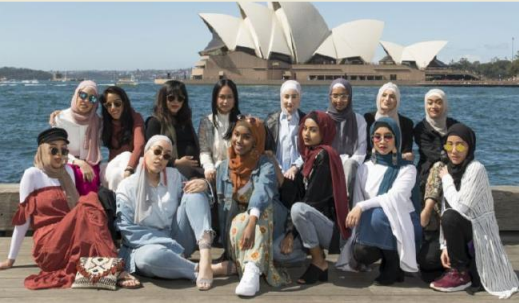
A picture from the DFAT
website promotion on modest
fashion. |
In some
societies, the
veil is regarded
as protection
from the male
gaze and sexual
predators, and
women who are
insufficiently
covered may not
be considered
innocent victims
of violence.
These notions
are underpinned
by fear of the
female as a
dangerous
temptress, adept
at causing
fitna, or
social chaos. In
order to protect
men’s honour in
society, female
dress requires
regulation.
Compulsory
veiling in the
public space is
a restriction
Iranian women
know too well.
From the
inception of the
Islamic Republic
in 1979, they
were subject to
criminalisation
of hijab
violations.
For modern-day
Islamists, the
veil has become
an iconic symbol
of their
movement, and
many women have
espoused a new
identity as
political
flag-bearers.
However, many
non-politicised
women, such as
those in Iran,
continually
rebel against
enforced
veiling. Some
women in Raqqa,
Syria,
demonstrated
their feelings
by burning their
veils when freed
from Islamic
State.
Not recognising
the political
oppression that
the veil can
represent is a
betrayal of
women who are
forced to accept
Islamic dress
codes. The veil
is also a
political tool
for extremists
who attempt to
lower the bar
for Islamisation.
In a case in
Britain, Shabina
Begum, a teenage
Muslim student,
was encouraged
by Islamists to
challenge her
Muslim-majority
school because
it denied her
the option of
wearing the
jilbab
(full-length
Islamic dress)
in place of the
regulation
Pakistani-style
school uniform.
She argued for
her rights in
the name of
modesty and
entitlement to
education but
refused to go to
a neighbouring
school where the
jilbab was
permitted.
Shabina lost her
case in the High
Court but won in
the Court of
Appeal under the
UK Human Rights
Act. After the
school appealed,
the House of
Lords ruled
against her.
The hijab and
Muslim clothing
in general are
minefields.
Islamists can
justify Islamic
brands that
exploit and
commercialise
piety, as such
fashion advances
identification
with the ummah,
the global
community of
Muslims. There’s
only a dubious
comparison to be
made between
Islamic modest
dress and that
of the Mormons
or
fundamentalist
Christians, as
the latter kind
is not
associated with
political
aspirations.
Muslim fashion
diplomacy is not
a fitting place
for governments.
Such sponsorship
is tantamount to
an imprimatur
for Islamic
dress codes.
Ida Lichter is
the author of
Muslim Women
Reformers:
Inspiring Voices
Against
Oppression.

The Australian

Linda Sarsour:
Trump’s
Anti-Muslim
Rhetoric Helps
Unite America
Against Him
By Linda Sarsour
|

Linda Sarsour is
a Palestinian
Muslim-American
activist, who
serves as the
Executive
Director of
MPower Change
and is also a
co-chair of the
Women’s March |
It was almost a
week after the
2017 Women’s
March — possibly
the largest
single-day
protest in U.S.
history — that
President Trump
signed an
executive order
temporarily
banning
immigrants and
refugees from
seven
Muslim-majority
countries. At
the time, I was
sitting with
friends in Los
Angeles and
found myself in
tears. I
couldn’t believe
it.
The new
administration
was wasting no
time in keeping
their campaign
promises to
target the
communities I
love and belong
to. Soon after
the executive
order was
signed, a tweet
went out asking
people to show
up at airports
across the
country in order
to stand up
against the
order.
I went to Los
Angeles
International
Airport and saw
an image that
continues to
fill my heart
with hope —
hundreds of
people demanding
entry for Muslim
immigrants and
refugees from
countries placed
on the travel
ban. As a Muslim
American who has
been working to
defend the
rights of
Muslims in the
post 9/11 era,
this act of
solidarity was
especially
important and
meaningful.
Two days after
the executive
order, I became
the lead
plaintiff in
Sarsour vs.
Donald J. Trump,
a lawsuit filed
by the Council
on
American-Islamic
Relations
against the
Muslim ban based
on Trump’s clear
anti-Islam bias
during his
campaign. We
were not going
to sit back. We
were going to
organize and
fight back
regardless of
the
consequences.
Over the past
year, this
administration
has put forth
multiple
versions of the
Muslim ban,
worked to
rescind the
Deferred Action
for Childhood
Arrivals,
targeted
undocumented
immigrants in
mass deportation
sweeps and
employed
manipulative,
hateful rhetoric
against our
communities.
Their shameless
use of the
courts to defend
what they know
is immoral and
unconstitutional
further shows
their disregard
for our nation’s
laws. It has
been both a
privilege and an
inspiration to
stand with
people resisting
each effort,
because behind
the policy
arguments are
real people
whose lives are
being upended.
Each Muslim ban
has separated
families, many
of whom live in
my community in
Bay Ridge,
Brooklyn. I know
Yemeni-American
fathers who are
longing to see
their children
but are in visa
limbo in
countries like
Ethiopia, Egypt
and Djibouti.
Syrian refugees
— who have
already suffered
in the journey
to leave their
homes — have
been further
separated from
half of their
families because
of the ban.

TIME

‘Padmaavat’:
an attempt to
demonise
Muslims?
By Zahid Jamil
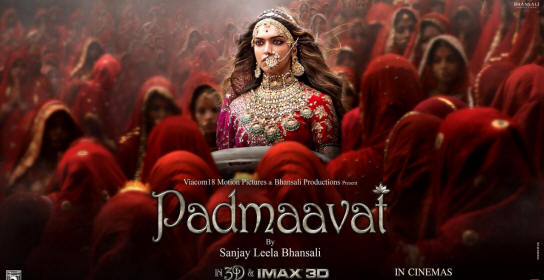
The
controversial
Bollywood movie
‘Padmaavat’ was
finally released
on Thursday 25
January showing
all across the
globe after
several months
of protests and
court actions in
India.
Cinemas in
Australia also
began showing
the movie the
same day with
several sessions
each day. It has
already grossed
record earning
in India and
several cities
in the West
including
Australia during
the last weekend
grossing $A
1,728,642 in
Australia alone.
Reviewers said
the film,
Padmaavat,
depicting a
warrior Hindu
Rajput queen
Padmaavati
fighting
advances of a
Muslim sultan,
was “visually
spectacular” and
a “fabulous
tale”.
Padmaavat
attempts to be a
historical
depiction based
on a fictional
poem by
15th-century
poet Malik
Muhammad Jayasi,
as claimed by
the filmmaker
and director
Sanjay Leela
Bhansali.
It shows
attempts,
through military
invasions, by
Indian Sultan
(King) of the
time Alauddin
Khilji in
pursuit of the
queen Padmaavati
of Chittor as he
got obsessed by
stories of her
extreme beauty.
Padmaavat stars
Deepika in the
lead role of
Rani Padmini.
Shahid Kapoor as
Maharawal Ratan
Singh and
Ranveer Singh
portrays
Alauddin Khilji,
the 13th century
ruler of the
Khilji Dynasty.
The 13th-century
Muslim king
Alauddin Khilji
is depicted as a
barbarian
character,
extremely vulgar
who has
kohl-rimmed
eyes, scarred
face, rips meat
off the bone
with his teeth
and treats his
own queen and
maids in a
brutal manner.
He is a
drunkard,
murderer and
cruel person
which houses
deceit and
debauchery.
Leading Indian
historians claim
that Sultan
Alauddin Khilji
was anything but
savage and the
film makes a
mockery of his
character
through false
depictions.
He was the
second and most
powerful ruler
of the Khilji
dynasty that
ruled the Indian
Subcontinent
from Delhi from
1296 to 1316. He
wished to become
the second
Alexander (Sikander
Sani), and this
title of his was
mentioned on
coins and during
public prayers.
Khilji was an
astute
administrator
whose tax and
revenue
collection
system was
followed by the
Mughals and the
British till the
19th century.
He personally
looked at prices
of essential
goods on a daily
basis and built
food grain
warehouses to
fight inflation.
But his most
important
contribution to
India was as a
military
general.
Historians say
Khilji saved
India from
marauding
Mongolian armies
by defeating
them six times
during his
20-year rule.
It was under his
rule the Delhi
Sultanate was
heavily
influenced by
Persia, one of
the oldest and
most
sophisticated
civilisations of
all times.
The great Sufi
poet Amir Khusro
of his time did
not project his
king as a
barbarian ruler
either. However,
in the film,
even Amir Khusro,
the much
celebrated Sufi
poet for
centuries and
founder of
devotional music
of Qawwali, is
depicted as a
petty poet with
little
intelligence.
On the other
hand, the Hindu
king of Chittor
is shown as
noble glorious
Rajput ruler and
a warrior king
who fought to
his dying breath
to defend his
kingdom and his
wife’s honour.
His wife
Padmavati is
depicted as a
legendary Mewar
queen who was
known as much
for her beauty
and intelligence
as she was for
her courage. She
is shown
committing
self-immolation
to save her
honour rather
than being
captured by a
brutal king.
Most historians
say Jayasi’s
Padmaavati was a
fictional
character, about
whom he had
written 200
years after
Khilji’s death
in 1540.
It can be
questioned if
this movie is
another attempt
to distort
Muslim history
in India as part
of a wider
movement by
Hindu
fundamentalists.
Muslim kings and
sultans who, for
more than a
thousand years,
ruled over a
vast region —
today’s India,
Pakistan,
Bangladesh and
parts of
Afghanistan left
a lasting
impression on
the
subcontinent’s
landscape,
culture and
institutions.
Cinema is a
powerful medium
and those behind
the camera must
act responsibly.
Padmaavat is
demonisation of
an entire
community that
is increasingly
coming under
attack from
various
quarters.
Source:
AMUST
ABOUT THE AUTHOR
 Zahid
Jamil is an
engineering post
graduate from
Indian Institute
of Technology (IIT)
and runs a
financial
planning
practice based
in Sydney. He
heads South
Asian Muslim
Association of
Australia, SAMAA:
http://samaa.org.au
), a benevolent
institution
offering wide
range of
services to the
community
elders. He also
moderates an
Islamic website
“Islamic Forum
for Education
and Research”
http://isfer.info/ Zahid
Jamil is an
engineering post
graduate from
Indian Institute
of Technology (IIT)
and runs a
financial
planning
practice based
in Sydney. He
heads South
Asian Muslim
Association of
Australia, SAMAA:
http://samaa.org.au
), a benevolent
institution
offering wide
range of
services to the
community
elders. He also
moderates an
Islamic website
“Islamic Forum
for Education
and Research”
http://isfer.info/
|


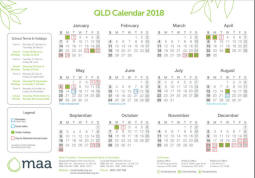

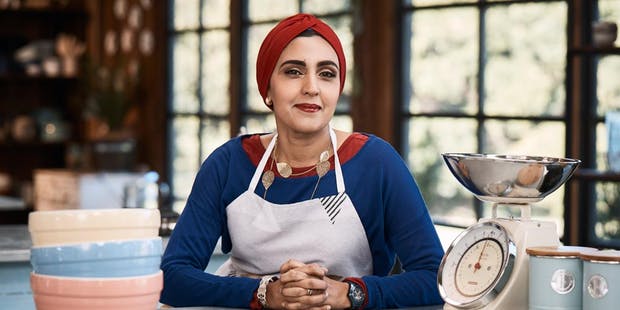

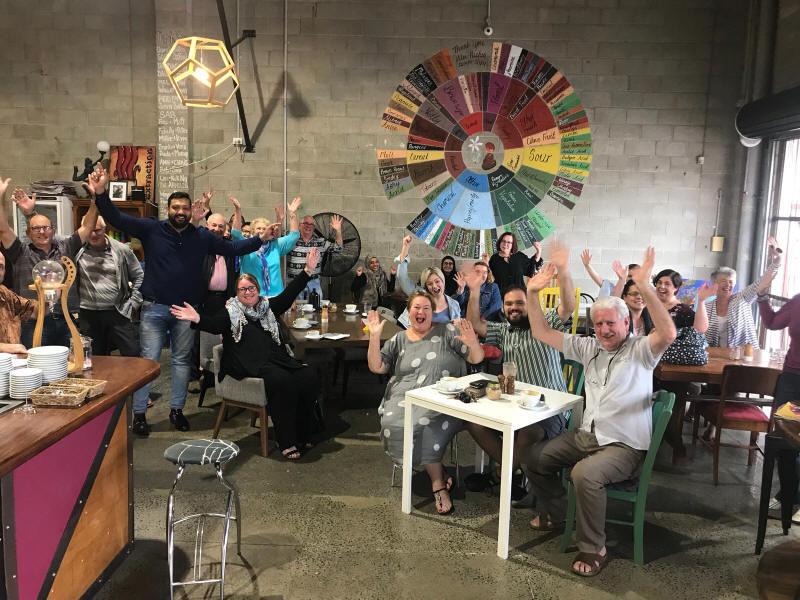
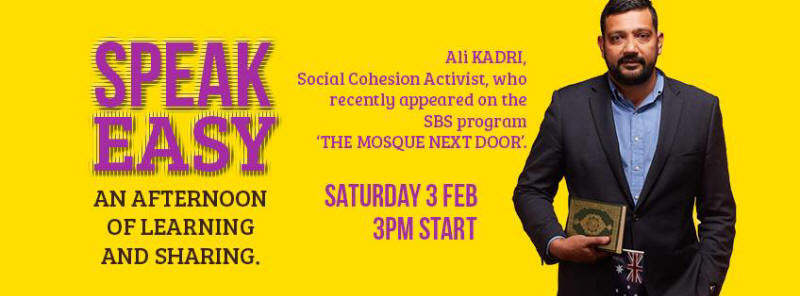
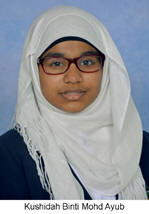

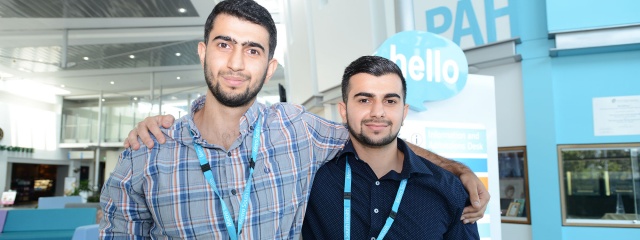

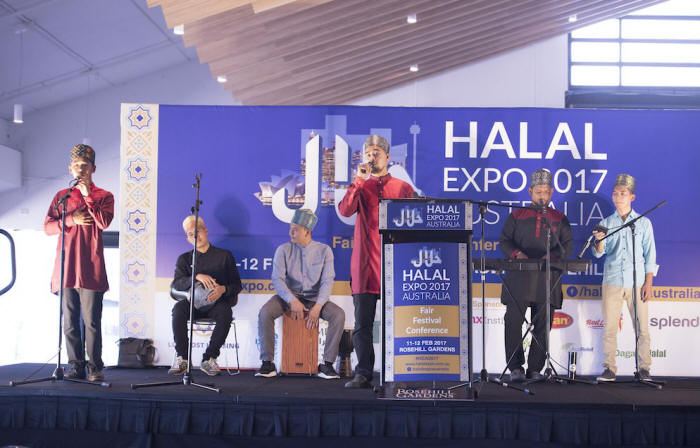
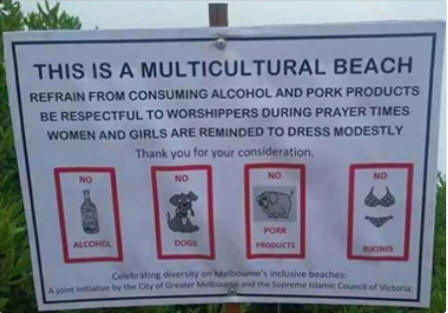
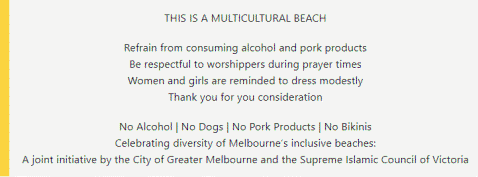
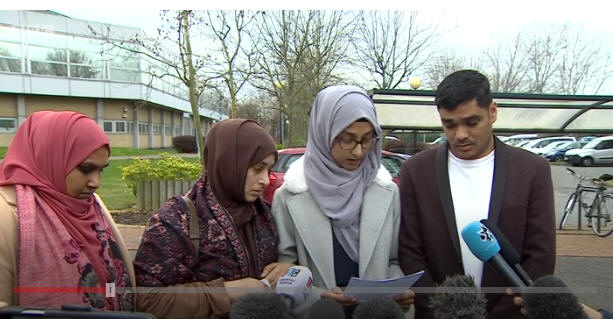
 Darren
Osborne was found guilty of
murder and attempted murder,
at Woolwich Crown Court and
sentenced to life in prison,
with a minimum term of 43
years behind bars.
Darren
Osborne was found guilty of
murder and attempted murder,
at Woolwich Crown Court and
sentenced to life in prison,
with a minimum term of 43
years behind bars.
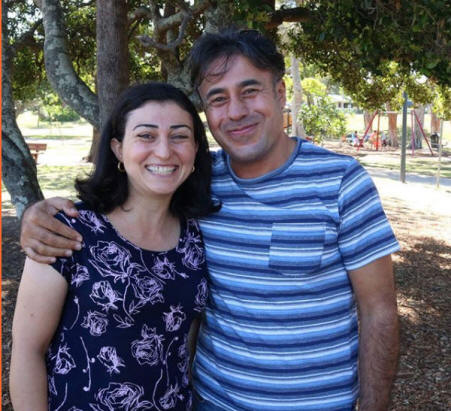
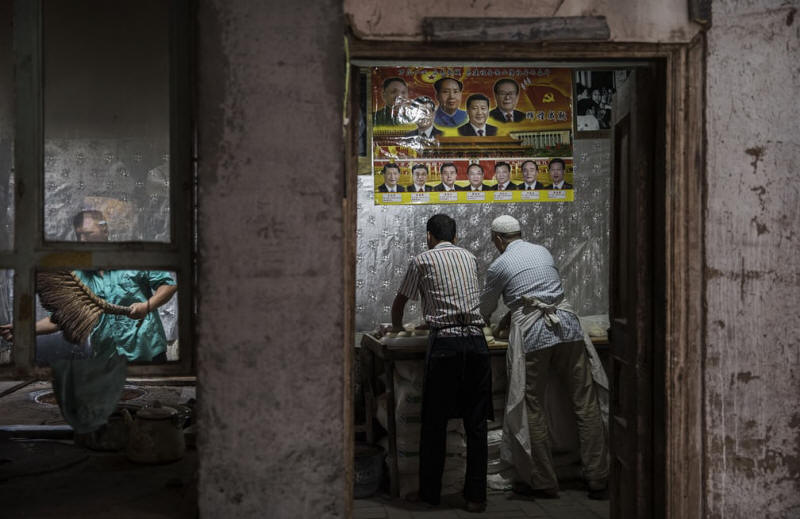


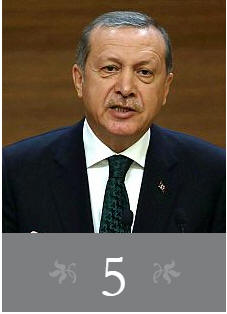










 Zahid
Jamil is an
engineering post
graduate from
Indian Institute
of Technology (IIT)
and runs a
financial
planning
practice based
in Sydney. He
heads South
Asian Muslim
Association of
Australia, SAMAA:
http://samaa.org.au
), a benevolent
institution
offering wide
range of
services to the
community
elders. He also
moderates an
Islamic website
“Islamic Forum
for Education
and Research”
Zahid
Jamil is an
engineering post
graduate from
Indian Institute
of Technology (IIT)
and runs a
financial
planning
practice based
in Sydney. He
heads South
Asian Muslim
Association of
Australia, SAMAA:
http://samaa.org.au
), a benevolent
institution
offering wide
range of
services to the
community
elders. He also
moderates an
Islamic website
“Islamic Forum
for Education
and Research”

